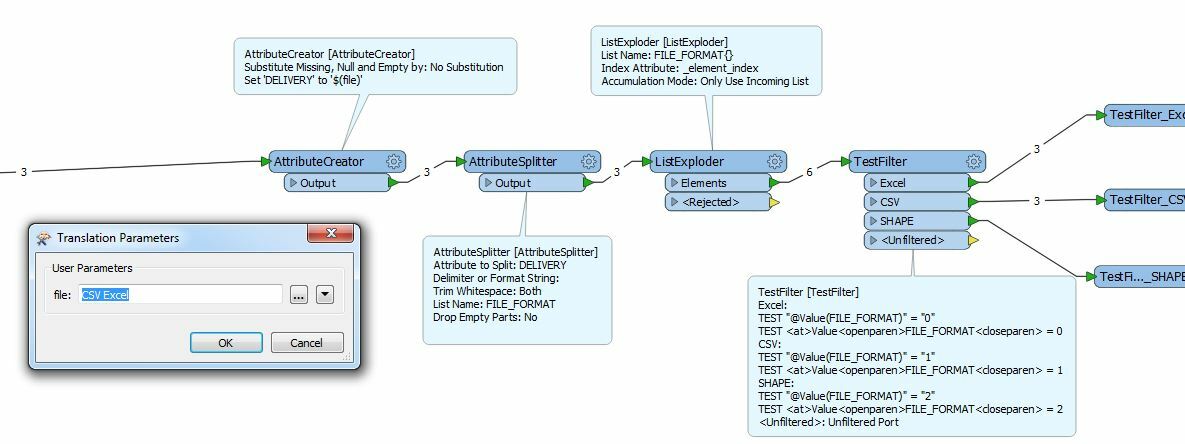I haven't seen a solution to this problem anywhere despite the fact that the question has been told several times.
Scenario: 1 reader and 1 writer. In published parameters you can choose one or many destinations (used by the writer). If one destination is chosen it's pretty straight forward but how do we do when several destinations is choosen? I want to copy all features from the reader to every destination that is selected in the published parameter. I.e. I want to loop the FME-script as many times as there are destinations selected.
It sounds simple but not for me, please help me out on this one.









